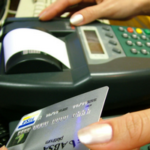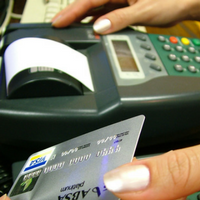Cashless society – the backlash
| 13-04-2018 | treasuryXL |
 Last week an article appeared on the BBC website about the current situation in Sweden. They have embraced the world of digital payments – cash payments in the retail sector now amount to only 15% of the total, compared to 40% in 2010. But against this resounding success, there is a growing unrest among the elderly and other groups perceived as vulnerable. The majority of the banks in Sweden have stopped customers from withdrawing or paying in cash at the banks. So, what are the consequences in a cashless society and how will digital money perform in the future?
Last week an article appeared on the BBC website about the current situation in Sweden. They have embraced the world of digital payments – cash payments in the retail sector now amount to only 15% of the total, compared to 40% in 2010. But against this resounding success, there is a growing unrest among the elderly and other groups perceived as vulnerable. The majority of the banks in Sweden have stopped customers from withdrawing or paying in cash at the banks. So, what are the consequences in a cashless society and how will digital money perform in the future?
75% of Swedes claim that they hardly use cash anymore – they take advantage of digital payments via cards, mobile phone and online facilities. The counter argument is that as long as people have the right to use physical cash and it is permitted by law, the people should be free to choose their method of payment. Those people that are protesting are normally seen as the elderly who have yet to embrace the culture and are still adverse to using digital technology. There are also many elderly who have no access to a computer at home who are now facing additional costs in a cashless society.
The crux of their argument that it should not be more expensive to enter into transactions if they decide not to use digital services. Riksbank (the Swedish Central Bank) adopted a cautionary stance in their annual report, stating that whilst progress was good, this must not result in a part of society from being excluded from the payment markets. Whilst the progress towards a cashless society looks inevitable, a survey in Sweden has shown that 70% of Swedes would still like the choice to pay with cash in the future.
If we move towards a completely cashless society, this will have a profound impact on the banking industry. Digital cash can be issued by the central bank directly to residents. It will not require the current level of intermediation that commercial banks currently provide to disperse money. Cash, as currently used, provides a certain level of anonymity – this trait would cease to exist if central banks issued digital currency. A fully digital currency would shorten the time needed for transactions to be settled and replace the plethora of existing settlements systems and exchanges.
It would appear that the biggest benefit would come in cross border payments – an area of banking that is still relatively slow and expensive to implement.
Cash is still king, but it would appear that it is starting to be seen as an old fashioned and inefficient means of settlement in an increasingly digital world.
[button url=”https://www.treasuryxl.com/contact/” text=”Contact us” size=”small” type=”primary” icon=”” external=”1″]
[separator type=”” size=”” icon=””]









